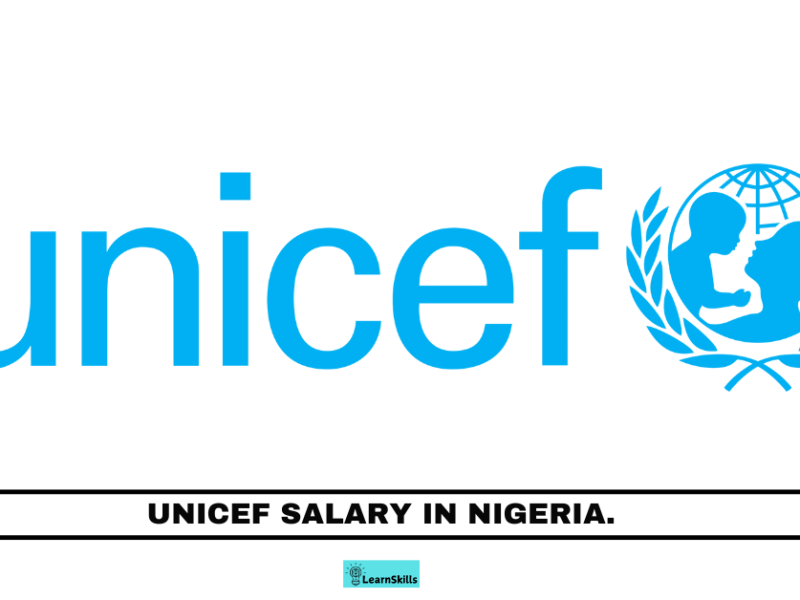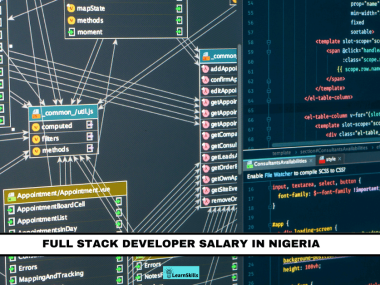If you’re curious about the salary structure at UNICEF in Nigeria, you’re in the right place. The average salary for UNICEF employees in Nigeria is approximately ₦1,200,000 in 2025. This figure varies widely based on the specific job role, experience, and location within the country.
For instance, positions such as Immunization Officers may earn between NGN12 million and NGN13 million, while State Managers typically receive around NGN 2 million.
Understanding these salaries can help you grasp the financial landscape of working for an organization dedicated to improving the lives of children.
Exploring UNICEF’s pay structure reveals the numbers and the commitment to valuing their employees. With competitive pay and benefits aligned with United Nations standards, working with UNICEF offers a rewarding opportunity for those passionate about making a difference.
UNICEF Nigeria Overview
UNICEF is vital in promoting children’s rights and well-being in Nigeria. The organization focuses on health, education, nutrition, and gender sensitivity, aiming to improve the lives of children across the country.
Mission and Core Values
UNICEF’s mission in Nigeria is to protect children’s rights and ensure their development. This includes advocating for access to health care, education, and nutrition.
The core values of UNICEF are:
- Integrity: Maintain a strong ethical foundation in all operations.
- Inclusiveness: Encourage participation from various groups, especially women and children.
- Accountability: Be responsible for the impact of its programs.
These principles guide UNICEF’s initiatives, ensuring they are effective and relevant to the needs of Nigerian children.
Key Programmatic Goals
UNICEF has several key goals for its programs in Nigeria. It aims to improve child health by addressing maternal health, nutrition, and disease prevention.
Second, education is a primary focus. UNICEF ensures access to quality education, especially for girls, promoting gender sensitivity throughout its programs.
Some specific initiatives include:
- Vaccination campaigns: To combat common childhood diseases.
- School programs: To enhance learning conditions and outcomes.
UNICEF’s strategic planning emphasizes partnerships with government and local organizations to achieve these goals efficiently.
By focusing on these areas, UNICEF addresses the most pressing challenges facing children in Nigeria today.
Employment at UNICEF Nigeria
Working at UNICEF Nigeria involves important roles that support children’s welfare and community development. Employees are expected to adhere to strict operational guidelines and ensure task accountability.
Roles and Responsibilities
At UNICEF Nigeria, employees take on various roles focusing on child protection, education, health, and nutrition. Common positions include Field Officers, Program Assistants, and Specialists in different sectors.
Key Responsibilities:
- Project Implementation: You will oversee and implement specific projects to benefit children and families.
- Monitoring and Evaluation: It’s essential to track project progress. You will gather data, assess results, and adjust plans as needed.
- Compliance: Compliance with UNICEF policies and local regulations is part of your duties. You must understand these guidelines well to avoid operational risks.
Operational Performance and Accountability
Every employee is vital to operational performance and maintaining accountability at UNICEF. You are expected to follow internal control systems that promote efficiency and transparency.
Focus Areas:
- Operational Guidelines: Understanding and applying operational guidelines is vital. You will use these to guide daily tasks.
- Reporting: Regular reporting on performance metrics ensures accountability. You will need to document outcomes and share insights with managers.
- Continuous Improvement: Engaging in training and workshops can enhance your skills. UNICEF encourages employees to pursue professional development opportunities.
This focus on responsibility and operational integrity helps UNICEF Nigeria fulfill its mission effectively.
Salary Structure and Benefits
UNICEF offers a structured compensation framework with various benefits to its employees in Nigeria. Understanding these aspects is important for current and prospective employees.
Compensation Framework
UNICEF’s salary structure is based on the United Nations-wide salary scales, which ensures competitive pay. In Nigeria, salaries can vary significantly depending on the role and level.
For example, here are some typical salary ranges:
| Position | Annual Salary Range |
|---|---|
| Consultant | NGN 3M – NGN 4M |
| State Manager | NGN 2M – NGN 2M |
| Immunization Officer | NGN 12M – NGN 13M |
| Senior Nutrition Facilitator | NGN 10M – NGN 11M |
These salaries reflect UNICEF’s commitment to fair compensation while maintaining fiduciary integrity in financial management.
Allowances and Insurance
In addition to salaries, UNICEF provides various allowances and insurance benefits. Your package may include housing allowances, health insurance, and life insurance.
Some of the common benefits include:
- Housing Allowance: Helps cover living expenses.
- Health Insurance: Comprehensive medical coverage for you and your family.
- Life Insurance: Provides financial security in case of unforeseen events.
These benefits support a well-rounded remuneration package that caters to employees’ needs while aligning with UNICEF’s administrative management and budget process.
Professional Development
UNICEF emphasizes professional growth for its employees in Nigeria through various training and capacity-building efforts. These initiatives enhance skills and support career progression within the organization.
Training Activities
UNICEF offers numerous training activities to improve your competencies. These programs focus on essential areas such as project management, child protection, and health services.
Training sessions may include:
- Workshops on specific topics relevant to your role.
- Online courses that allow flexible learning schedules.
- Mentorship programs pair you with experienced professionals.
These activities help you stay updated on best practices and policies. Training boosts your skills and also leads to opportunities for advancement.
Capacity Building Initiatives
Capacity building is crucial to UNICEF’s goals in Nigeria. The organization works to strengthen your abilities to implement effective programs.
Initiatives include:
- Leadership development programs aimed at enhancing management skills.
- Community engagement training that equips you to connect with local populations.
These initiatives focus on policy formulation and collaboration with other stakeholders. By participating, you contribute to meaningful change and support UNICEF’s mission. Such opportunities position you for career advancement while making a real impact in your community.
Partnerships and Collaborations
Partnerships and collaborations are essential for UNICEF’s work in Nigeria. By engaging with various entities, UNICEF maximizes its impact on children’s lives. This includes collaborations with local and international partners and policy interpretation and coordination efforts.
Local and International Partners
UNICEF collaborates with local and international partners to deliver essential programs. Local partners include the Federal Government of Nigeria and non-governmental organizations (NGOs). These collaborations help UNICEF effectively reach vulnerable communities.
Key international partners include United Nations agencies and foundations. They support various initiatives, from health programs to educational resources.
Benefits of partnerships:
- Resource sharing: Partners bring in funding and expertise.
- Access to communities: Local partners help UNICEF connect with children in need.
Through these partnerships, UNICEF ensures it addresses the specific challenges faced in Nigeria.
Policy Interpretation and Coordination
Effective policy interpretation and coordination are crucial for successful program implementation. UNICEF works closely with the Federal Government and other stakeholders to align efforts with national policies.
Regular meetings and discussions occur to interpret policies related to social services. This collaboration ensures that UNICEF’s programs support government initiatives.
Key aspects include:
- Joint planning: This helps unify goals for child welfare.
- Monitoring progress: Agencies track the impact of collaborative efforts.
By coordinating closely, UNICEF maximizes the effectiveness of its interventions throughout Nigeria.










